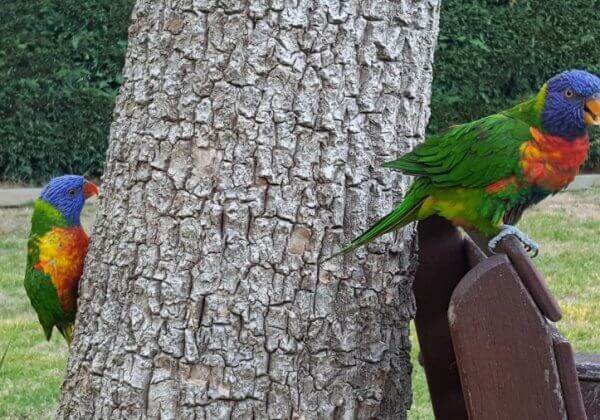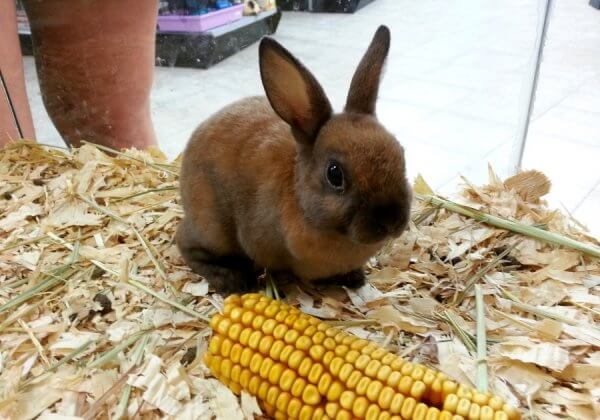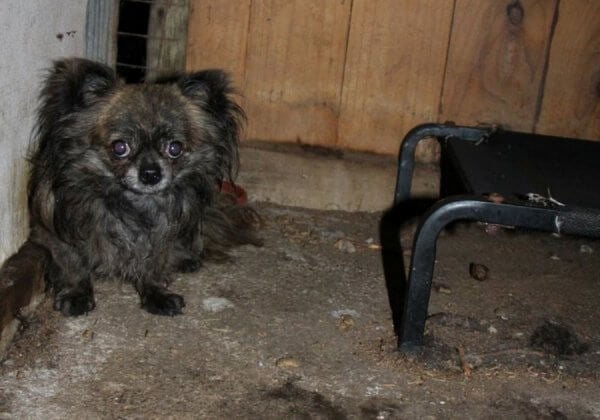Exotic Animals Are Not ‘Pets’
The trade in exotic animals – which is often illegal – is a notoriously cruel business.
“Exotic animals” are defined as those that are not indigenous to Australia. Parrots, reptiles, turtles, invertebrates, primates, and many other animals are smuggled into the country and sold unlawfully after undergoing long journeys in very cramped conditions.

Trauma, Abuse, and Neglect
Exotic animals are taken from their mothers, often within hours or days of birth, so that they can be acclimatised to human contact. This separation often leaves both mother and baby deeply traumatised for life. The animals are usually transported in gruelling conditions. Smugglers may tape parrots’ beaks and feet before stuffing them into plastic tubes that can easily be hidden in luggage. They’ve been known to seal baby turtles inside their shells and shove them by the dozen into tube socks – and infant pythons have been shipped in CD cases.
As secrecy is essential to smugglers, animals are often denied any food or water for the duration of the journey. Many die from hunger, thirst, or asphyxiation before reaching their destination. Some are injured by other terrified animals or as a result of being handled roughly.
Many people who purchase exotic animals struggle to look after them, so some are released into the wild, far from their native habitats, causing major environmental problems.
https://www.facebook.com/WorldOfParrots/posts/843480372452015
Danger to Human Health
The trade in exotic animals endangers the lives of not only the animals themselves but also humans. Many wild animals carry diseases that can be fatal to humans, especially infants. Contact with reptiles and other exotic animals can cause salmonellosis in humans, since an estimated 90 per cent of reptiles are infected with salmonella.
Evidence suggests that reptile-associated salmonella infections more commonly lead to hospitalisation and more frequently involve infants and young children than other types of salmonella infections.
In addition, parrots can transfer psittacosis, which can be deadly. Humans may also pass on deadly viruses to exotic animals who have never been exposed to our environment.
https://www.facebook.com/PetDocksVH/posts/10152410121928134?match=c2FsbW9uZWxsYSxBdXN0cmFsaWEsYXVzdHJhbGlhLGxpemFyZHM%3D
Legal Risks
Australia has many strict laws against illegal imports, but this doesn’t stop the illicit pet trade from trying to make a quick profit from its unscrupulous business.
Possessing an illegally imported animal is an offence under the Environment Protection and Biodiversity Conservation Act 1999, for which the penalties are up to five years in jail, a fine of up to $110,000, or both.
A full list of animals who likely cannot be legally imported into Australia is available here.
Other Issues
Even those species deemed “legal” or native to Australia are generally not suited to life as animal companions.
Birds – who yearn to fly freely and engage in natural kinds of behaviour – are often kept in cages.
Fish and amphibians are confined to tanks and denied the chance to roam or swim freely, form complex relationships, and do everything else that’s natural and important to them.
All these animals endure intense loneliness and the overwhelming stress caused by confinement in an unnatural and uncomfortable environment. Life in captivity can rapidly lead to pain, malnutrition, other health conditions, and even death.

How to Help Exotic Animals
To make sure you aren’t contributing to this cruel trade, refuse to buy exotic animals.
If you’re suspicious that someone may be involved in the illegal pet trade, notify the Department of the Environment and Energy or the police immediately.







